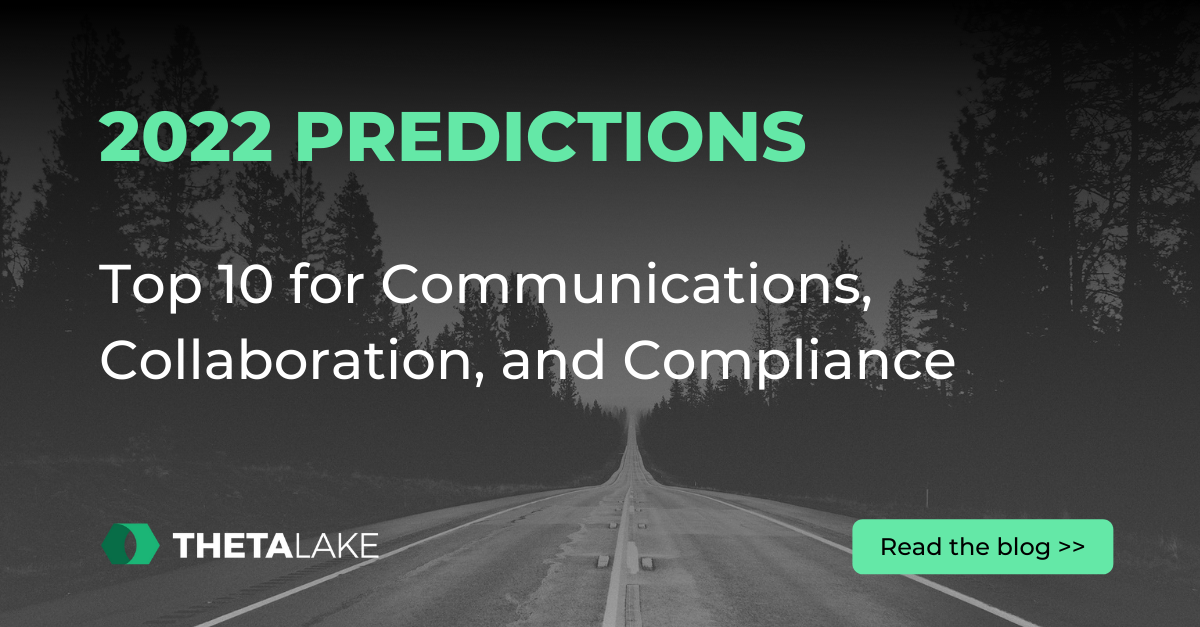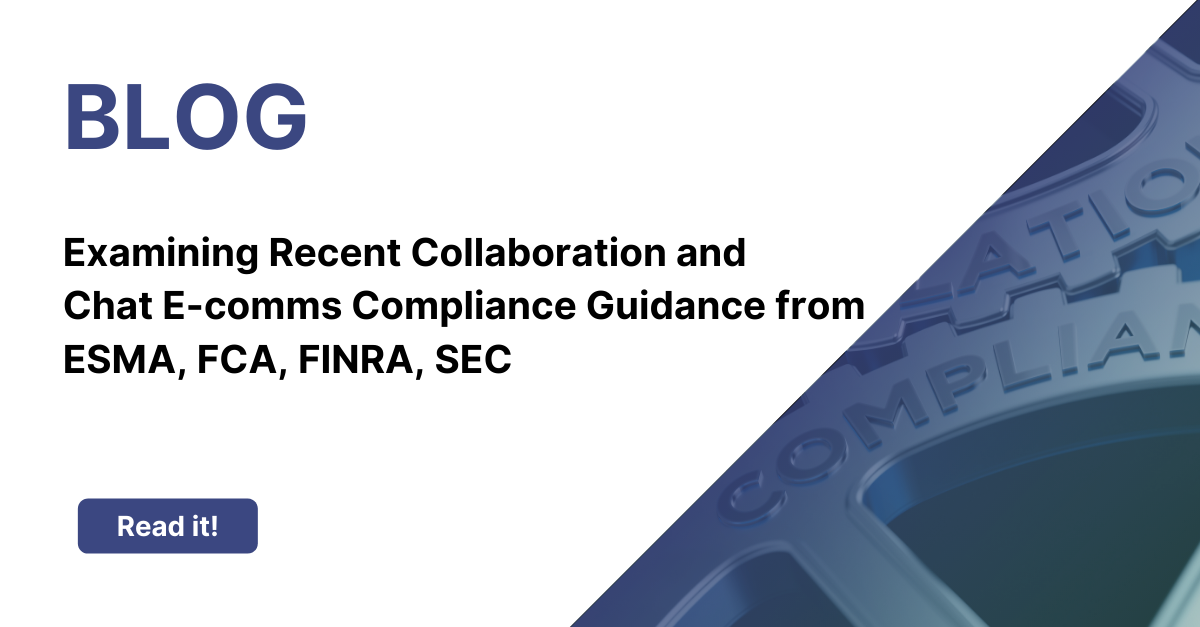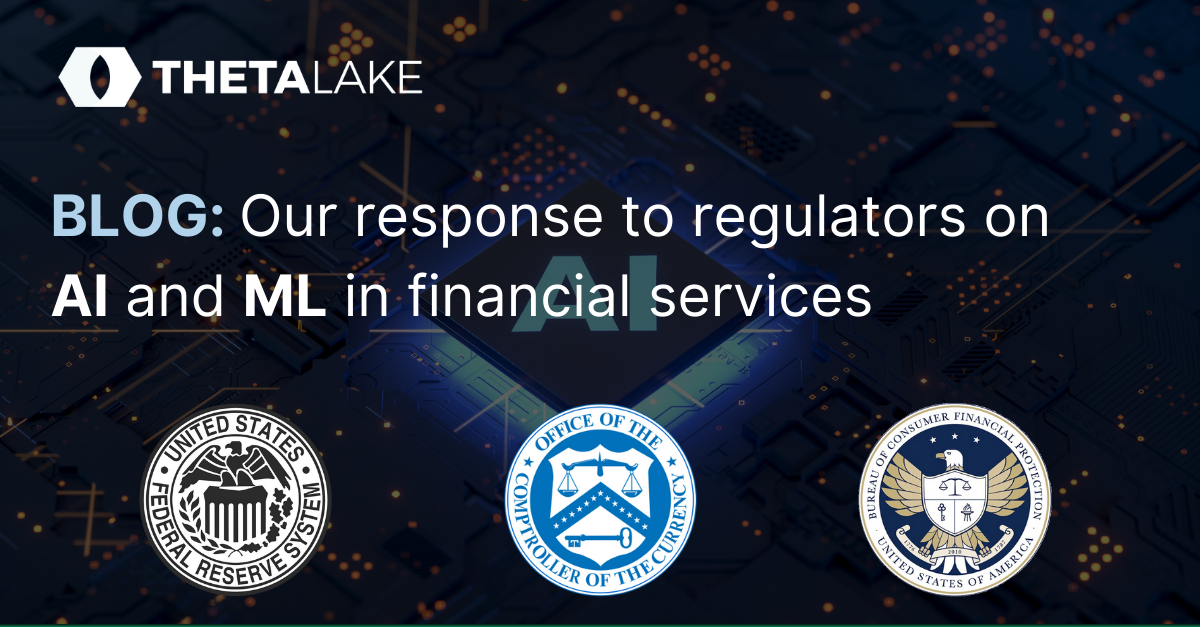The last two years have brought tremendous change, forcing us all to adapt and adopt technology, processes, and initiatives to stay connected virtually in an era where live interaction has been mostly restricted. The communication and collaboration market was front and center in making this possible.
10 Predictions for 2022: Communications, Collaboration, and Compliance
Topics: compliance, predictions, surveillance, electronic communications, communications, collaboration
Examining Recent Collaboration and Chat E-comms Compliance Guidance from ESMA, FCA, FINRA, SEC
It’s clear that the flexibility regulators including ESMA, the FCA, FINRA, and the SEC offered financial services firms around the relatively unfettered use of modern collaboration and chat tools like Zoom, Microsoft Teams, and Webex by Cisco during the pandemic has come to an end. No action relief issued at the outset of COVID-19 has expired, and regulatory missives in the second half of 2021 indicate a marked change of tone and expectations for firms using dynamic communication platforms.
Topics: compliance, chat compliance, surveillance, monitoring, regulations, electronic communications
Our Response to Regulators on AI and ML in Financial Services
Last month Theta Lake submitted a response to a request for comment from several federal banking agencies including the Federal Reserve, the Consumer Financial Protection Bureau, and the Office of the Comptroller of the Currency about the use of Artificial Intelligence (AI) and Machine Learning (ML) in financial services. In our response, we described how Theta Lake uses AI in its Security and Compliance Suite, offered thoughts about how the agencies might create a framework for assessing AI risk, and outlined a few standard practices that would facilitate strong AI development in the future.
Topics: voice compliance, regtech, surveillance, financial services
Supervision & surveillance: 10 tips to keep regulators and staff happy
Financial services firms have long used technology to supervise the communications and activities of employees, to ensure compliance with regulatory requirements and be able to detect issues such as market abuse, mis-selling or data privacy. It’s a key control for meeting regulatory obligations including MiFID II, CFTC, FINRA, IIROC and GDPR and a standard feature of working in a regulated industry. Likewise data loss prevention tools are commonplace across businesses to reduce the risks of data loss and exposure. All designed to protect consumers, employees, and shareholders.
Topics: compliance, data leakage, data loss, supervision, record-keeping, surveillance, monitoring





.png)